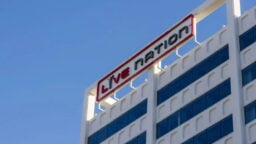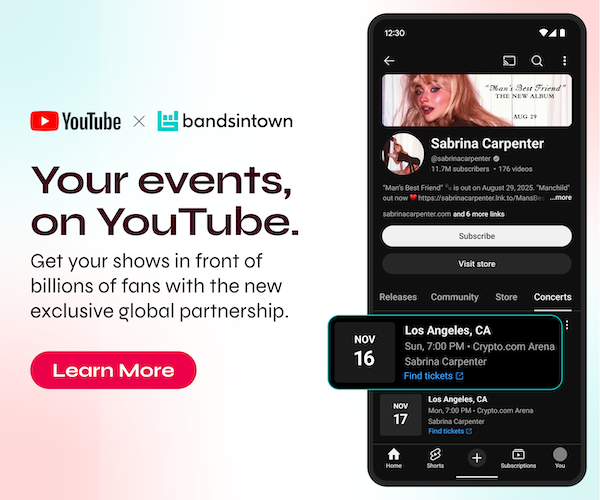Live Nation, the live music giant, has fired back at accusations that its dominance in the market, and that of its ticketing arm Ticketmaster, is the culprit behind skyrocketing concert ticket prices.
In an over 2,800-word blog post on Monday (March 4), the company vehemently denies responsibility for rising ticket prices, instead pointing the finger at artists, venues, and secondary ticketing platforms.
“Tickets are actually priced by artists and [sports] teams. It’s their show, they get to decide what it costs to get in. The NFL tickets on Ticketmaster were priced by the home teams, concert tickets were priced by the performer’s business teams, Monster Jam tickets were priced by its producer (Feld Entertainment), and so forth,” Live Nation wrote.
“Tickets are actually priced by artists and [sports] teams. It’s their show, they get to decide what it costs to get in.”
Live Nation’s explainer comes amid ongoing scrutiny and criticism of the ticketing industry in the US, with Live Nation and Ticketmaster often being the target. The 2010 merger of the two entities further fueled concerns about potential monopolies and unfair practices.
Last November, the company was subpoenaed in a US Senate probe over “exorbitant ticket prices,” and the company is the target of an ongoing antitrust probe by the US Department of Justice.
“American consumers deserve fair ticket prices, without hidden fees or predatory charges. And the American public deserves to know how Ticketmaster’s unfair practices may be enabled by its misuse of monopoly power,” Democratic Sen. Richard Blumenthal said in November.
In its blog post Monday, the company suggested that some criticism stems from genuine misunderstandings about how the live music industry operates, and Live Nation’s role as a concert promoter.
“Nowadays, it’s common for top artists to get 90% or more of the net ticket revenues. The promoter gets only what remains after the guarantee, other show costs, and the artist’s percentage have been paid out.”
“The arguments we hear about Live Nation’s role in concert pricing are inconsistent. Some claim that Live Nation is so powerful in concert promotion that it can dictate what artists charge; others claim that Live Nation can raise its prices to artists, and this gets passed through to fans in higher ticket prices. Neither argument is plausible,” Live Nation said.
Live Nation noted that promoters typically guarantee performers a certain amount of money for a show, and while they do not set ticket prices, they do pay attention to pricing.
“Think about a simple guarantee to an artist of $100,000 for one show at a 5,000 seat venue: there is no way for a responsible promoter to offer that guarantee without at least a general understanding of what those 5,000 tickets will sell for,” it said.
The company also argued that the additional fees added to ticket purchases are necessary for venues and ticketing companies to recoup their costs, as they receive minimal revenue from the face value of the ticket itself. Live Nation said its take is typically 5%-7% of the face value of the ticket.
“Service charges are added to the face value of concert tickets because two important players in the concert ecosystem – venues and primary ticketing companies – get little or nothing out of the revenues derived from the ticket’s face value,” Live Nation said.
“The add-on nature of the service fee is annoying to many fans and fuels the narrative that these are junk fees. But they are not junk fees for the simple reason that the venues and ticketing companies have costs associated with the services they provide to help produce the show. They provide value and one way or another will be compensated for it.”
Live Nation also highlighted that artists and venues earn the majority of the revenue from ticket sales and service charges, respectively.
“Promoters don’t set prices, artists do. The artist and [their[ business team listen to the promoter’s input and then decide. This is the case even with a promoter as large as Live Nation or AEG.”
“Nowadays, it’s common for top artists to get 90% or more of the net ticket revenues. The promoter gets only what remains after the guarantee, other show costs, and the artist’s percentage have been paid out,” it explained.
The company says that concert promoters, including Live Nation, offer proposals to artists, but the final pricing decision rests with the artist and their team.
“Promoters don’t set prices, artists do. The artist and [their] business team listen to the promoter’s input and then decide. This is the case even with a promoter as large as Live Nation or AEG,” it added.
Live Nation attributes high ticket prices to factors like strong demand for popular artists and the growing trend of concerts becoming premier “experience goods.”
The company also highlighted the fact that artists now rely more on touring income due to the decline in record sales as a result of streaming. This, according to Live Nation, potentially influences pricing strategies.
Live Nation also suggests that online resale platforms like StubHub have influenced artists’ pricing strategies by showcasing that the “true market value for their tickets” is higher than what artists charge in the primary market.
Live Nation concludes its explainer by stating that claims attributing high ticket prices to their dominance are “just flat wrong”. The company claims such statements aim to “rile up fans” and disregard the complexities of the industry.
The company recently described 2023 as its “biggest year ever” after reporting a 36% YoY jump in full-year revenue to $22.7 billion. The company also noted that over 145 million fans attended over 50,000 of its events last year.
CEO Michael Rapino said during an earnings call that the company was “actually surprised and thrilled” that its all-in ticket pricing, which enables ticket-buyers to see the final price of a ticket before purchase, is a success. Rapino predicted that all-in pricing will eventually become not just a matter of practice for ticket sellers, but also a matter of law.
Music Business Worldwide





